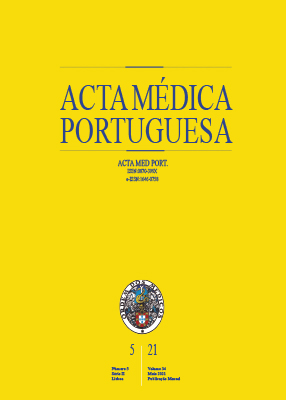Proposal for a Guideline of Risk Reduction and Sensitivity Optimization in Imaging Tests for People with Diabetes
DOI:
https://doi.org/10.20344/amp.15486Keywords:
Contrast Media, Diabetes Mellitus, Type 1, Type 2, Diagnostic Imaging, Positron-Emission TomographyAbstract
Diabetes is a very common chronic disease in the Portuguese population, with an estimated prevalence of 13.6% in the adults. Doubts often arise regarding the best preparation and the risks associated with doing imaging tests in these patients. In this article we intend to review the main precautions in imaging tests in people with diabetes and to suggest a guideline to reduce the risks and optimize the sensitivity of these tests in this population. The main topics addressed in this article are the need to suspend metformin after the administration of endovascular iodinated contrast due to the risk of lactic acidosis, the precautions in insulin-treated patients or those taking medicines with a higher risk of hypoglycemia when performing imaging tests that require fasting, and the influence of hyperglycemia and of anti-diabetic therapy on the sensitivity of PET-FDG. With this review and the presentation of a guideline, we intend to demystify and simplify the management of individuals with diabetes who are undergoing imaging tests.Downloads
Downloads
Published
How to Cite
Issue
Section
License
All the articles published in the AMP are open access and comply with the requirements of funding agencies or academic institutions. The AMP is governed by the terms of the Creative Commons ‘Attribution – Non-Commercial Use - (CC-BY-NC)’ license, regarding the use by third parties.
It is the author’s responsibility to obtain approval for the reproduction of figures, tables, etc. from other publications.
Upon acceptance of an article for publication, the authors will be asked to complete the ICMJE “Copyright Liability and Copyright Sharing Statement “(http://www.actamedicaportuguesa.com/info/AMP-NormasPublicacao.pdf) and the “Declaration of Potential Conflicts of Interest” (http:// www.icmje.org/conflicts-of-interest). An e-mail will be sent to the corresponding author to acknowledge receipt of the manuscript.
After publication, the authors are authorised to make their articles available in repositories of their institutions of origin, as long as they always mention where they were published and according to the Creative Commons license.









